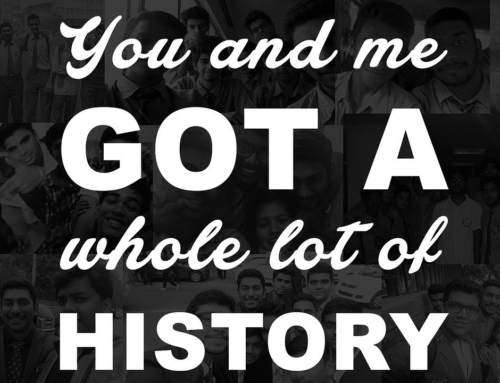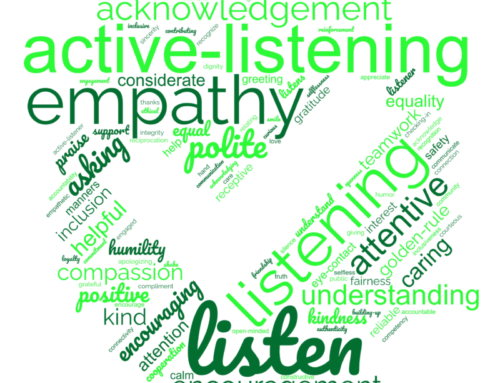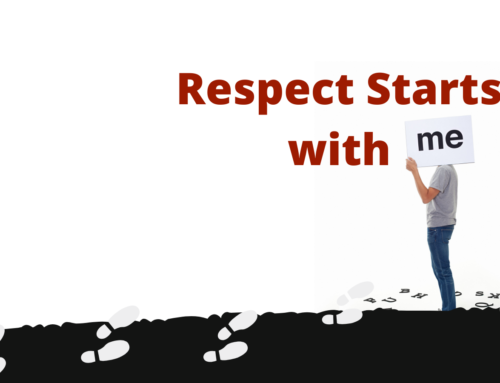Should we expect conflict with the people we work with?
It all comes down to one word: RESPECT
Today, we immediately gravitate towards a negative interpretation when we hear the term ‘conflict.’
What does the term ‘conflict’ mean though?
The Merriam-Webster dictionary tells us that ‘conflict’ is:
A struggle for power, property, etc.
Strong disagreement between people, groups, etc., that results in often angry argument
A difference that prevents agreement: disagreement between ideas, feelings, etc.
It all sounds pretty negative doesn’t it?
When I look at these definitions I am able to think of specific situations in my life in which these definitions perfectly describe those moments.
There have been times when I have actually been a contributor to those moments as well. After all, don’t you need Two to Tango?
Actually, I am not proud of that fact….but now, I like to say that I’m a Fully-Trained Adult (FTA) and looking back on those moments, I see that I was unable (or unwilling) to see things from the other person’s perspective…..a difference that prevents agreement…according to the authority quoted above.
In workplace situations conflict is most likely experienced as relationship conflict.
In other words, it is conflict felt as interpersonal friction which is often borne out of annoyance or frustration as a result of different views on what should be done or how things should be done.
Sound familiar?
Well it should do since there are numerous studies telling us that conflict of some sort is an inevitable part of the workplace experience.
It is how we handle conflict that counts
It is how we choose to handle that conflict when it arises that will make the difference as to whether we see the conflict as an insurmountable wall, or as an almost foreseeable part of sharing space with other humans.
Survey after survey report that just about half of all employees report some form of interpersonal conflict at work in the last year, whether it be an isolated dispute or incident of conflict and/or an ongoing difficult relationship.
Such conflict is most common with one’s immediate manager, followed by colleagues and people who one’s immediate manager reports to; in other words, with the people we work most closely and are less able to avoid.
The biggest consequences resulting from conflict with our immediate manager is demotivation and stress.
Think back to the time when you were in conflict with your immediate supervisor.
Question 1: How excited were you to work hard following the conflict you experienced?
Your likely answer: Not Very.
Question 2: How happy were you about coming to work each day?
Your likely answer: Not Very.
You may have not only experienced a dip in your motivation, productivity or commitment level but you may have even considered leaving that job or asking for a transfer (if that were possible). This would have been increasingly likely if you viewed the roots of the conflict stemming from a personality clash.
When asked what the conflict looked like, most of us would likely respond that it was a lack of respect demonstrated by the other person.
That lack of respect may have shown up in issues connected to:
- Differences in personality or styles of working
- Individual competence or performance
- Real or perceived level of support or resources
- Agreeing deliverables or setting targets
- Contract of employment/terms and conditions
- Absence or absence management
- Promotion concerns
Surely it must sound familiar now?
How do we respond to conflict?
Most employees will respond in 1 of 4 ways to conflict in the workplace.
- Informal discussion with the other person
- Formal grievance, discipline or complaints procedure
- Discussion with member of family or friend
- I didn’t do anything – I just let it go
By far, the best way is to have an informal conversation with the person with whom you are experiencing the conflict.
There is definitely a place for formal processes in organizations and the route of informal discussions and formal processes are generally found to be the two leading sources of resolving conflict. Having said that though, the more formal procedures are sometimes ineffective because they encourage parties to set battle lines, fostering a zero-sum game mentality and making views more entrenched, instead of encouraging a more balanced and positive win–win outlook.
Steps in informal conversations to clear up conflict
Here are some beginning steps that can be taken in having effective informal conversations with someone with whom you are experiencing conflict:
- First of all, thank the other person for agreeing to discuss the situation
- Speak calmly
- Explain in detail what the other person has done that offended you and provide specific examples of the behavior
- Stay focused on how the issue is impacting you in the workplace
- State your commitment to being part of the resolution
- If the other person apologizes, accept the apology and thank them
- State your suggestion for how to resolve the situation
- Confirm the agreed-upon resolution and clarify what each of you will do to implement the resolution
- Finally, make certain that you thank the other person for their willingness to work on the change
There are also aspects to think about should you ever be the person who is on the receiving end of such a conversation by a colleague.
- Have the conversation
- Act respectfully
- Clarify critical information if you do not understand something
- Do not argue thoughts, feelings and perceptions
- Respect reasonable requests
- Give the other person credit for having this conversation – this is not easy
We need supervisors, managers and leaders in our organizations to make a shift in their expectations and practice when it comes to resolving conflict. The approaches for alternative and informal dispute resolution should make up part of the required skillset of the well rounded leader, at whatever level they supervise.
We must enhance the ability of our workforces to engage in informal conversations to resolve or contain low-level conflict before it gets out of hand.







Leave A Comment